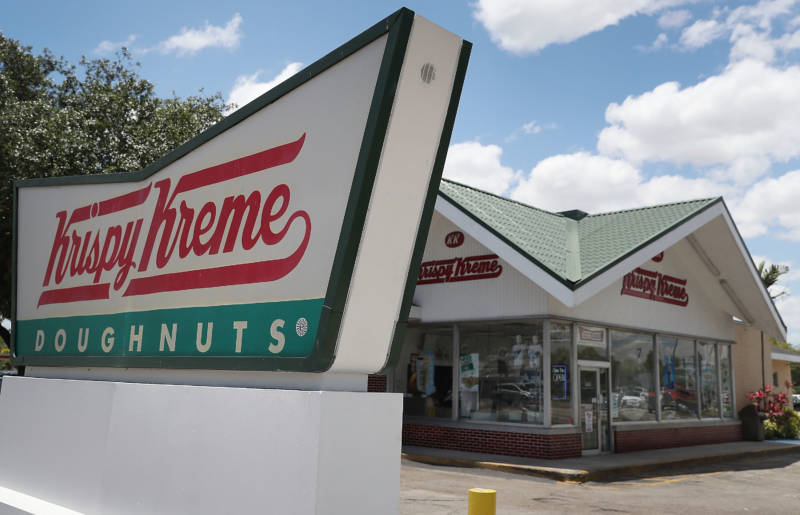This week, the decision by one of Germany's wealthiest families to go public about their Nazi history was greeted with both shock and admiration around the globe. Of their own volition, the Reimann family—who own Krispy Kreme Doughnuts, Pret A Manger and Peet's Coffee, among many other companies—commissioned a three-year investigation into their family history. When the full horrific report came back, rather than stew in shame privately, the Reimanns took the brave step of going public.
Turns out, Albert Reimann Sr. and Jr.—the family members who ran the Reimanns' conglomerate, JAB Holding Company, in the 1930s and '40s—were pretty monstrous. The father-son team were avid supporters of Hitler, donating to the SS before Hitler was even in power. They used forced labor (12 million people from across Europe were abducted and used this way in Germany during World War II), and beat and sexually assaulted female workers from Eastern Europe. In 1940, Albert Jr. even wrote to the mayor to complain that French prisoners of war were not working hard enough in his factory. He also corresponded with the architect of "The Final Solution," Heinrich Himmler. The Alberts died in 1954 and 1984, respectively.
A spokesman for the Reimanns, Peter Harf, revealed the family's reaction to finding out what their ancestors did. “We were speechless,” said Harf, one of JAB Holding's managing directors. “We were ashamed and were white as a wall. Reimann Sr. and Reimann Jr. were guilty. They belonged in jail.” The Reimanns will be donating 10 million Euros (about $11 million) to charity.
For Germans, the Reimanns' open handling of their dark history is probably a little less surprising than it is for the rest of the world. It actually falls in line with the manner in which Germany, on a national level, deals with that particular war. Rather than clearing its landscape of the primary signifiers of Nazi history—the concentration camps—Germany maintains them as a means to simultaneously reckon with the past and forge a better future. If you visit any of the remaining concentration camp sites, chances are you will see groups of school children solemnly walking around with their classes. It is considered a national obligation.
"In recent decades, Germany has accomplished an undeniably impressive feat," Foreign Affairs noted in 2017, "a collective acceptance of moral responsibility for the terrible crimes of its recent past." The Reimanns' handling of their family history walks this same line. While it's almost expected in their home country, it offers an example the rest of the world could—and should—learn from.


